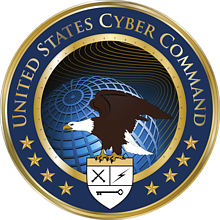 The University of Maryland has joined 83 other academic institutions in a new initiative to increase the nation’s capabilities in cybersecurity education and workforce development.
The University of Maryland has joined 83 other academic institutions in a new initiative to increase the nation’s capabilities in cybersecurity education and workforce development.
The Academic Engagement Network—announced by the U.S. Cyber Command (CYBERCOM) on January 6, 2022—supports and enhances CYBERCOM’s forward-looking efforts involving the U.S. cyber workforce, applied cyber research, applied analytics and other strategic issues.
The network consists of 69 universities, 13 community colleges, nine minority serving institutions, four military service academies, and four military war and staff colleges. These institutions are located in 34 states and the District of Columbia.
Its goal is to create a robust and accessible pool of qualified cyber professionals that can assist CYBERCOM in its mission of defending critical U.S. information networks, providing support to combatant commanders for execution of their missions around the world, and strengthening the nation’s ability to withstand and respond to cyberattacks.
Michel Cukier, a professor of reliability engineering and director of the university’s Advanced Cybersecurity Experience for Students (ACES) program, says the partnership is a perfect fit for UMD students and faculty interested in the latest tools and technologies involving digital security.
“Being chosen to participate in this academic network is of great value and is certainly indicative of the University of Maryland’s exceptional strength in cybersecurity research and education,” he says.
Cukier notes the wide breadth of cybersecurity resources already established at UMD that will dovetail nicely into the new academic network, including ACES, the Maryland Cybersecurity Center (MC2) and the Scholarship for Service program within ACES.
As part of the Academic Engagement Network, UMD will receive communications from CYBERCOM; gain access to guest lecturers from the organization on cyberspace strategy, policy, law, innovation and workforce issues; and receive invitations to exclusive webinars about CYBERCOM’s most pressing technical and non-technical problems, as well as how to benefit from key Department of Defense programs that impact cyberspace.
CYBERCOM also plans to offer capstone mentorships beginning in the Fall 2022 semester. Additionally, they will sponsor internships, fellowships and recruiting programs for network members.
Michelle Mazurek, an associate professor of computer science and the director of MC2, will work closely with Cukier to identify new research opportunities for Maryland students and faculty to explore.
“We’re excited to be selected as a charter member of this network,” she says. “It will allow us to make connections with CYBERCOM practitioners who are facing very difficult real-world security problems that can inform our research directions.”
—Story by Melissa Brachfeld
About ACES: The ACES Living Learning program is a two-year honors academic experience revolving around cybersecurity. The curriculum gives students the opportunity to learn hands-on technical and non-technical aspects of the field, and the on-campus living requirement allows them to do so all within a close-knit community. The program also introduces students to public and private industry partners, due to UMD’s proximity to the nation’s capital.
About MC2: The Maryland Cybersecurity Center is a research and education powerhouse focused on multiple areas of cybersecurity, including theoretical and applied cryptography, data-driven security, human-computer interaction and security, network and wireless security, machine learning and security, blockchain and cryptocurrency security, and programming languages security. MC2 is jointly supported by the A. James Clark School of Engineering and the College of Computer, Mathematical, and Natural Sciences.